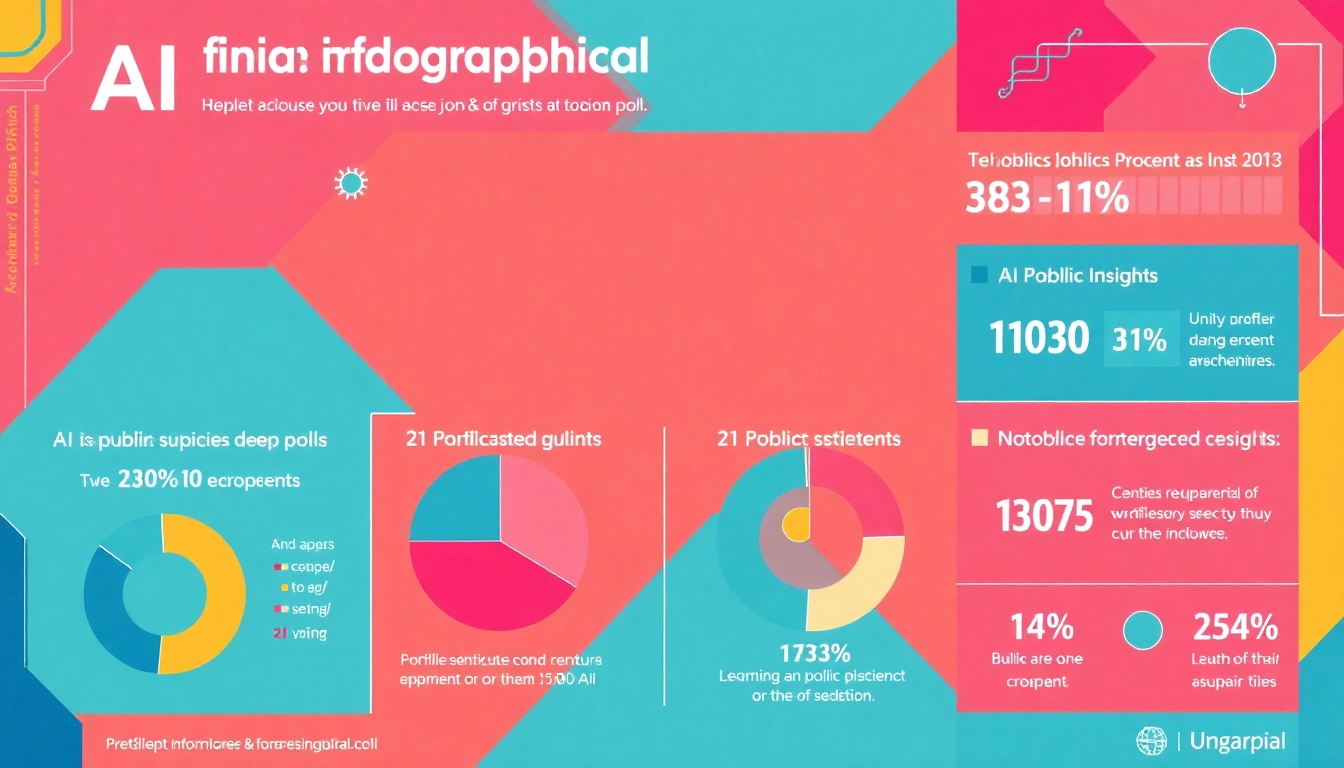
Introduction to AI Opinion Polls
As artificial intelligence (AI) continues to evolve and infiltrate various aspects of daily life, understanding the public’s perception of AI has become increasingly important. AI opinion polls serve as a crucial tool in gauging sentiments, concerns, and expectations surrounding the use of AI technologies. These polls not only help businesses and policymakers shape their strategies but also contribute to a more informed discourse around the ethical and societal implications of AI. In this article, we will delve into what an AI opinion poll is, examine current public perceptions, explore the factors influencing these opinions, review notable case studies, and discuss the future of polling methodologies.
What is an AI Opinion Poll?
An AI opinion poll is essentially a survey designed to collect data on people’s attitudes and feelings towards artificial intelligence. These polls can cover a wide range of topics, including the perceived benefits and drawbacks of AI, levels of trust in AI systems, ethical considerations, and the extent of AI adoption in various sectors. The data gathered from these polls can provide insights into how different demographics view AI, how fears and hopes are shaped over time, and what potential societal impacts AI may have in the future.
Importance of Polling in AI Discourse
Polling plays a vital role in understanding public perception, especially in an era where technology is advancing at a rapid pace. The importance of polling in AI discourse lies in its ability to:
- Inform Policymaking: Data from AI opinion polls can help lawmakers craft regulations and policies that reflect the concerns and needs of their constituents.
- Guide Business Strategies: Companies can utilize polling data to align their AI initiatives with consumer expectations and mitigate potential backlash.
- Drive Ethical Discussions: Understanding public sentiment can foster discussions on the ethical use of AI technologies and their potential societal impacts.
Overview of Recent Trends
Recent studies have shown a growing skepticism towards AI among the public. For instance, a Pew Research Center report from November 2023 highlighted that 52% of Americans surveyed expressed more concern than excitement regarding the integration of AI into their daily lives. This shift in sentiment raises critical questions about how AI technologies are perceived and accepted by society.
Current Public Perceptions of AI
Major Findings from Recent Studies
Data from various opinion polls reveals critical trends in public sentiment. According to research conducted by Gallup and Bentley University, a significant portion of the American public believes AI could lead to job losses and has more negative than positive views on its implications. In fact, approximately 68% of respondents indicated a preference for caution when considering AI’s role in the workplace, emphasizing a need for increased transparency and regulation.
Demographics and AI Sentiment
AI sentiments vary significantly across different demographics. Factors such as age, gender, education level, and geographic location influence how people perceive AI. For example, recent surveys indicate that women generally express greater caution about AI compared to men. Furthermore, younger demographics tend to be more optimistic about AI’s potential, while older individuals often display wariness, particularly about job displacement.
Comparative Analysis with Previous Years
Contrasting current sentiments with historical data shows a marked shift over the years. Polls conducted in earlier years reflected greater enthusiasm about AI capabilities. However, as high-profile AI failures and ethical concerns have come to light, particularly regarding misinformation and privacy, public enthusiasm has waned, giving way to skepticism and fear.
Factors Influencing Opinion on AI
Media Influence and Public Awareness
The media plays a pivotal role in shaping public perception of AI. Sensationalized portrayals of AI in popular culture, coupled with extensive media coverage of AI-related incidents such as data breaches or algorithmic failures, contribute to heightened fear and mistrust among the public. Conversely, media initiatives that emphasize the benefits of AI in improving healthcare, education, and productivity can foster a more balanced understanding.
Educational Impact on AI Understanding
Education significantly influences how individuals view AI. Those with a strong background or education in technology or data science tend to have more nuanced and positive views of AI capabilities. Educational initiatives that aim to demystify AI and inform the public about its workings can play a key role in improving overall sentiment toward the technology.
The Role of Personal Experience with AI
Personal experiences with AI technologies can greatly influence opinions. Individuals who have had positive interactions with AI, such as using helpful virtual assistants or personalized recommendations on streaming platforms, may view AI more favorably. In contrast, negative experiences, such as receiving misleading information from AI-driven services, may lead to increased skepticism and criticisms of AI technologies.
Case Studies of Notable AI Opinion Polls
Highlighting Key Surveys
Several notable polls and studies provide valuable insights into public opinion on AI. The YouGov research revealed that nearly 40% of Americans currently believe that AI will have a negative effect on society, a sharp increase from previous years. Another key survey by the Axios organization indicated that 72% of respondents expressed concerns about AI’s role in spreading misinformation, indicating a significant area of public anxiety.
Methodologies Used in Data Collection
Different methodologies are utilized in polling to ensure comprehensive data collection. Common approaches include online surveys, telephone interviews, and focus group discussions. Each method has its advantages and limitations, influencing the robustness and generalizability of the findings.
Implications of Findings for Businesses
The implications of polling findings are significant for businesses leveraging AI technologies. Understanding public sentiment allows organizations to tailor their AI solutions responsibly and address consumer concerns about transparency and ethics. Companies that prioritize public perception in their strategic planning are more likely to achieve success and maintain user trust.
Future of AI Opinion Polling
Technological Advances in Polling
The future of AI opinion polling will be shaped by advancements in technology, including big data analytics, machine learning, and social media sentiment analysis. These tools offer the potential to gain deeper insights into public sentiment and allow for more nuanced real-time analysis of opinion changes as they occur.
Expectations for Future AI Surveys
Future AI surveys are expected to incorporate more targeted demographic questions, allowing for a better understanding of how different groups perceive AI. Additionally, the rise of AI in various contexts—such as healthcare, finance, and education—will likely lead to more specific polling questions tailored to these industries.
How Businesses Can Adapt to Changing Opinions
As public opinions continue to evolve, organizations must remain adaptable. Companies should actively engage with their audiences, transparently communicating the benefits and risks associated with AI technologies. Regular feedback loops, where businesses solicit customer opinions through surveys, will be crucial in ensuring that AI developments resonate positively with users.







